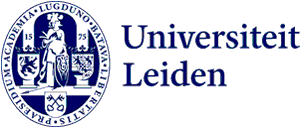
‘Not every experiment works, but that’s part of the job’
PhD candidate Joeri Schoenmakers works at the LIC and describes how his days revolve around new experiments, oxygen-free reactions and supervising students. The mix of freedom, variety and a close-knit team means he enjoys both his research and his teaching role every single day.
Joeri’s typical workday doesn’t actually start in the lab, but at his desk. ‘I begin with a literature search: what has already been done, and which experiment do I want to carry out myself?’ He then works out his ideas in detail. ‘I calculate exactly how much of each substance I need. Only when that is all correct do I head into the lab.’
Oxygen-free chemistry
Once in the lab, the real work begins. Many of his reactions cannot be exposed to oxygen, which means every step must be exceptionally precise. ‘We have a glovebox: a large cabinet filled with nitrogen, where you work using built-in gloves. Another method is using the tubing in my fume hood, which allows me to remove the oxygen or replace it with nitrogen.’
‘I calculate exactly how much of each substance I need. Only when that is all correct do I head into the lab.’
After running the reaction, he separates and analyses the products. ‘Then I look at the results and decide what the next experiment should be.’
Researcher and supervisor
Alongside his own experiments, he also supervises students. ‘At the moment I’m supervising a master’s student who works on similar reactions. I help interpret her data and explain things that aren’t yet in the literature. I really enjoy that – you get to explain something that only a handful of people know.’
He also teaches regularly, which is a requirement for many PhD candidates. ‘I teach practical classes for first-year students. You explain everything: how to pipette, how to work accurately and, above all, safely. I love laying that foundation.’

The power of aziridines
Joeri’s research focuses on developing ways to make aziridines – small, ring-shaped building blocks that are needed to construct larger, more complex molecules. ‘In another research group, people might spend a year making such a complex molecule. At some point they need an aziridine, and then they come to me. I aim to develop methods that are practical, reliable and suitable for many different applications.’
Freedom – and the joy of something that works
The freedom of a PhD is a major advantage, he says. ‘If an idea makes sense, I’m allowed to try it. Not everything works, and definitely not on the first attempt. But that’s part of research. And when something suddenly does work – that’s still magic.’
His office is in the Gorlaeus Building, which he shares with three other PhD candidates. ‘It’s great fun. You just turn your chair around, ask a question and immediately start thinking together. Those short lines of communication make a real difference.’ It lowers the threshold to ask a quick question.
‘The research being done here in Leiden simply appealed to me the most.’
Looking ahead
Joeri is no stranger to the faculty. After a bachelor’s in Molecular Science and Technology, a master’s in Chemistry and even a board year at the study association Chemisch Dispuut Leiden, he chose Leiden once again. ‘The research being done here simply appealed to me the most.’
A tip for fellow PhD candidates
Joeri thinks for a moment before offering a tip. He finally says: ‘Remember that failed experiments are normal. It’s frustrating, but it’s part of the process. Don’t let it discourage you.’
